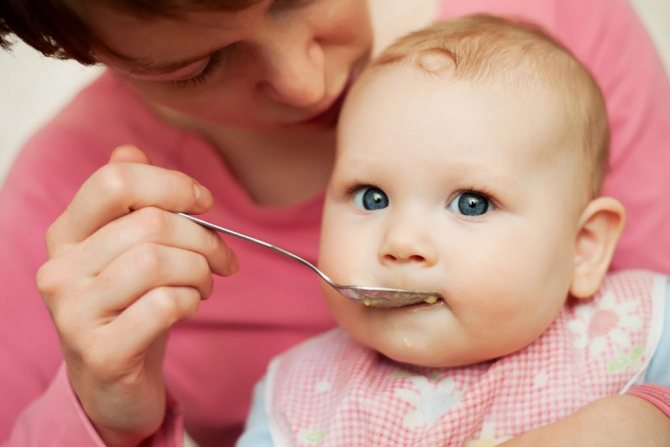Every parent wants their child to grow up smart, healthy and happy. One of the effective means of achieving this goal is the correct daily routine of the baby. At 11 months of age, the schedule is practically no different from the schedule of the previous period. However, a number of certain features of the new routine still exist. Their appearance is associated with the process of growing up of the baby and his individual inclinations. The article will discuss how to create the correct daily routine for a child at 11 months old, how much sleep a baby should have, what needs to be taken into account, and what difficulties may arise.
A proper daily routine is the key to the happiness and health of a small child.
Why the 11 month regimen?
The health and comfort of the baby largely depend on the daily routine. A well-established schedule is important for children of any age, but for the first months of life this point is of particular importance. A well-designed schedule is beneficial not only for the baby, but also for his parents. The process of developing a regimen should take into account the baby’s natural biorhythms. Only in this case will the child’s nervous system not be harmed, and it will also be possible to develop all the necessary skills in him, strengthen the immune system and help him adapt to new living conditions. A clear routine makes the child more disciplined and calm - he knows what time his parents will feed him, when they will play with him, take him for a walk and put him to bed. On the other hand, a written schedule helps mom and dad plan their day in advance, which also contributes to a quiet and peaceful environment in the house.
Important! With a significant and sudden change in the established daily routine of an 11-month-old child, the baby may become capricious and irritable.
Possible deviations from normal development
Parents of a child should be concerned if the following occur:
- the child still cannot sit with his legs stretched forward;
- the baby makes no attempt to independently hold himself in an upright position against a support;
- the child is unable to hold a cup in his hands and drinks only with the help of adults.
In these situations, consulting a specialist will not be superfluous, as it will help dispel all doubts of parents regarding the health of their beloved child.
Rate this article
Loading…
- Related Posts
- An infant cries in his sleep, what are the reasons for this?
- Should you worry if your child starts in his sleep?
- What time can you start sitting down boys?
Changes in the child's routine
By 11 months, children usually develop a fairly clear and stable day and night routine, which continues into the future.
At this age, children become more active and independent, play more often, and show much greater interest in exploring the world around them.
The main skill that a baby masters at 11 months is independent walking, and therefore the likelihood of injury increases significantly. For this reason, under no circumstances should the child be left unattended (which also affects the daily routine). At this time, the baby continues to crawl deftly and quickly on all fours. Such activities should be encouraged as they help develop the muscles of the limbs and thus prepare the child to walk more confidently. At this age, most children strive for independence and demonstrate it in every possible way; some try to stay close to their mother. Often, parents continue to sleep with their children, which complicates the child’s adaptation to kindergarten conditions in the future. Therefore, it is recommended to wean an 11-month-old baby from this habit.
Interesting. From a psychological point of view, this point is very important - a child who is always close to his mother feels protected, but by the time he grows up, such attachment gives rise to infantilism in a person, making him unable to solve his own problems.
By 11 months, the child's total sleep time is reduced to 14 hours, 3 of which include daytime rest. During the day, the baby sleeps only once.
As for nutrition, at this age a young gourmet has time to try almost all the main products and at the same time continues to consume breast milk or artificial formula.
On a note. Interestingly, during this period the baby begins to master the use of cutlery and a toothbrush.
For a child, the optimal daily routine by the hour is of great importance. The main points, compared to earlier periods, remain the same, with the exception of night feedings.
One way or another, despite some changes, the daily routine of a child under one year old should be built according to general principles:
- Individual approach. When drawing up a schedule, it is important to take into account the individual characteristics of the baby. The routine must correspond to the biorhythms and natural physiological processes of the young body.
- Compromise (within reasonable limits). It is desirable that the routine be convenient for all family members and take into account the interests of the parents and the child.
- Subsequence. The actions of all household members must be uniform, coordinated, and orderly. To learn the necessary skills, a child needs consistency and certainty, otherwise it will be difficult for him to develop the necessary habits.
- Flexibility. Any schedule at least sometimes requires correction. The child grows and develops, his habits and needs change. Parents should monitor this and make timely changes to the schedule.
Menu for the week
The weekly diet is presented in the indicative nutrition table for a child of 11 months. The first feeding is breast milk or formula.
How to set the mode
At 11 months, the child is already accustomed to following a certain routine. When deviating from the norms, the baby becomes restless, cannot fall asleep, and begins to be capricious.
Sample day and night schedule for an 11 month old baby
| Time | Class |
| 7:00 | Waking up, hygiene procedures, feeding |
| 8:30 | Breakfast, game, reading or other educational activity, massage |
| 10:00 | Getting ready for bed, rest |
| 11:30 | Waking up, feeding, playing, walking |
| 12:30 | Lunch, game, reading |
| 14:00 | Preparing for afternoon nap, rest |
| 15:00 | Waking, feeding, playing |
| 17:30 | Dinner, game, chat, walk |
| 18:30 | Rest, swimming |
| 21:00 | Preparation for sleep |
Daily routine of an 11 month old baby
Daily routine while breastfeeding
A sample daily routine may include the following activities:
- 7:00 – awakening (the child can wake up on his own, or his mother wakes him up), carrying out hygiene procedures;
- 7:30 – 8:00 – first feeding (mother gives breast milk to the baby);
- 8:00 – 10:00 – first daytime nap (it is advisable for the child to be in the fresh air at this time);
- 10:00 – 10:30 – breakfast (you can offer your baby fruit puree);
- 10:30 – 11:30 – time for active games and educational activities;
- 11:30 – 12:00 – gymnastics and massage;
- 12:00 – 12:30 – lunch (this can be vegetable soup), games, educational activities;
- 12:30 – 15:00 – walk, second nap;
- 15:00 – 15:30 – afternoon snack (the child can be given cottage cheese and fruit juice);
- 15:30 – 17:00 – educational activities, active games;
- 17:00 – 18:00 – third nap;
- 18:00 – 18:30 – dinner, games;
- 18:30 – 20:00 – evening walk;
- 20:00 – 20:30 – bathing (it calms the child and helps him fall asleep quickly and easily);
- 20:30 – 21:00 – gv;
- 21:30 - 7:00 - night sleep, which continues all night without interruption.
Artificial baby's daily routine
The daily routine of a baby fed with breast milk substitutes is almost the same as when breastfed. The only nuance that distinguishes these regimes is the replacement of breast milk with an artificial formula.
List of recommended products
So what should you give your baby at 11 months? If you followed the standard scheme when introducing complementary foods, then you can safely include in the menu for the week:
- vegetables and fruits
- cereal porridge
- meat and fish dishes
- liver, heart, tongue
- vegetable soups
- cottage cheese
- yolk
- kefir

Organization of sleep at 11 months
At this age, the child’s nighttime sleep is not interrupted by periodic awakenings (there are exceptions when the baby wakes up to feed once a night at approximately 4-5 am) and continues for 11-12 hours.
Since an eleven-month-old child is quite actively exploring the world around him, he has to make up for the lack of energy not only with nighttime rest, but also with daytime rest.
During the day, it is enough to put the child to bed 2 times for 1.5 hours, however, according to doctors, for example, Dr. Komarovsky, 3-4 hours of sleep once a day is preferable. At the same time, too long a daytime rest is extremely undesirable, since it impairs falling asleep in the evening and makes sleep restless.
Laying down should be done when the child himself shows that he is tired:
- Rubs his eyes;
- Yawns;
- Appears lethargic or irritable.
Helps you fall asleep better:
- Quiet pleasant music;
- Back and stomach massage;
- Stop active games an hour before bedtime or earlier;
- Comfortable place to relax;
- Comfortable clothes;
- Calm atmosphere in the house;
- Lack of bright lighting.
To form the correct sleep pattern, it is recommended to organize getting up in the morning at the same time - approximately 7-7:30 in the morning. It is advisable that daytime rest occurs from 9:00 to 10:00, as well as from 12:00 to 14:00.
Important! The time you are awake before going to bed at night should not exceed 3.5-4 hours.

Baby's sleep
Features of feeding
The main menu for a child up to one year old is breast milk or its substitute. At the same time, the complementary feeding diet at this age expands significantly. The frequency of meals is 5 times a day, the interval between them is about 4 hours. In the morning, immediately after waking up, and also before going to bed, the baby is given breast milk or artificial formula. The rest of the diet includes adult food. Most often this is pureed food and solid food, cut into pieces.
If a child refuses to eat, it is recommended to add new foods to the menu, alternate dishes, and offer the same food several times in a row.
At this age, children no longer wake up at night to feed, except when:
- The child has an unbalanced diet or is malnourished;
- The boy or girl experiences a lack of communication with their parents;
- The baby does not know how to fall asleep on his own.
The nuances of breastfeeding
A baby who has reached the eleventh month still needs breast milk. At the same time, it is not at all necessary to run to the baby at his first request, especially if the mother is currently busy. Asking your child to wait 2-3 minutes is perfectly acceptable.
It happens that at eleven months the baby is practically not interested in other food except mother's milk. There is nothing wrong with this, the child just needs to be given time. It is not allowed to force feed the baby. Also, you should not deny your baby breast milk.
With artificial feeding
An 11-month-old baby is considered old enough to eat regular foods. The baby's daily diet includes vegetables, cereals, soups, meat and other products. The nutrition of a bottle-fed baby has the following features:
- Citrus fruits and other exotic foods should be introduced into the diet at a later age.
- Grinding food is not necessary.
- Spices should not be added to food.
- Food is steamed or boiled. Fried foods should be excluded.
Sample menu for 1 day:
- 6 am – artificial mixture 200 ml.
- At 10 am, the child can be given chicken yolk, fruit puree and juice.
- At 2 o'clock in the afternoon, vegetable broth, vegetable puree with meat, and fruit juice are recommended. You can give a steamed beef cutlet with mashed potatoes.
- At 6 pm the baby is offered cottage cheese, fruit puree, and fermented milk product.
- At 10 pm - 200 ml of artificial mixture. Before going to bed, you can give a glass of baby kefir or yogurt.

Feeding the baby
Prohibited Products
It is important to pay attention to possible food intolerances. It is not recommended to give to infants:
- citrus
- exotic fruits and vegetables
- nuts
- sweets and chocolate
- carbonated drinks
- whole cow's milk
- salt and spices
- canned food
- sausages and smoked meats
- mushrooms
- honey
- coffee
- Black tea

Wake mode
The daily schedule includes:
- Active games;
- Developmental activities;
- Walks;
- Gymnastics and massage;
- Hygiene procedures;
- Feeding.
Walks
The child should spend a lot of time outdoors: in the summer season - from 3 to 3.5 hours 2-3 times a day, in winter - 1-2 hours up to 2 times a day. For active pastime, it is recommended to use a stroller in which the baby will sit comfortably. Periodically, the child should be taken out for a short time so that he can move independently.
You need to take your baby for a walk every day, taking into account weather conditions and the baby’s health condition. You should not dress your child too warmly, and things should not fit too tightly.

Walking with a child
Activities and educational games
At 11 months, the development of speech, expansion of vocabulary, development of skills, their consolidation, improvement of coordination, memory, and various abilities are of great importance. Special games and activities help greatly in this matter:
- Reading books together;
- View bright, large illustrations;
- Performing simple songs;
- Collecting puzzles, construction sets;
- Modeling and drawing;
- Role-playing games.
Gymnastics and massage
The most useful exercises for the legs are:
- Climbing a step whose height is 8 cm;
- Swinging on a fitball;
- Leg movements simulating cycling.
Also useful are exercises for bending and extending the arms and legs, bending the torso, and gymnastics for the face (pulling the lips with a tube, puffing out the cheeks).
To strengthen the child’s immunity, you can do acupressure in the sternum, temples, and ear area. The procedure takes about 15 minutes.
Bathing
This procedure is carried out not only for hygiene purposes, but also as a ritual before bed. The temperature of the water in the bath should be around 34 degrees. For washing, use special children's shampoos and high-quality soap. After bathing, the child should be doused with slightly cooler water to harden the child. An evening swim takes about 10-15 minutes.
Disturbances in the daily routine of infants
Possible violations include the following:
- Refusal of one of the daytime dreams;
- The child gets up in bed, learns to stand and walk;
- The usual methods of putting the baby to sleep cease to work;
- The child confused day and night;
- The baby wakes up frequently and sleeps restlessly.
If the baby refuses one of the daytime naps, you need to continue to follow the previous regime. If morning sleep interferes with lunchtime, you need to reduce its time to an hour. You can also move the time of the second sleep forward half an hour.
If the baby begins to get up in the crib, then you should show him how to lie back down. It is also necessary to devote more attention and time to daily training of walking skills.
As a child grows up, he stops responding to the usual ways of laying down. This means that he wants to fall asleep without outside interference.
Poor sleep can be caused by:
- Stuffiness in the room;
- Complete darkness or too bright light;
- Improper feeding;
- Teething;
- Uncomfortable bed;
- Uneasy atmosphere in the house;
- Uncomfortable clothes.
Eliminating these factors and providing comfortable conditions will allow the child to quickly and easily fall asleep and have a good rest during the night.
If your baby has confused day with night, the following methods will help return the routine to normal:
- Wake up the child early in the morning;
- Don't let him sleep during the day;
- Provide favorable conditions for night sleep;
- Stop active games 1-2 hours before a night's rest.
The routine of an 11-month-old baby will make every day of the baby useful and eventful, allowing him to actively develop and feel happy.









